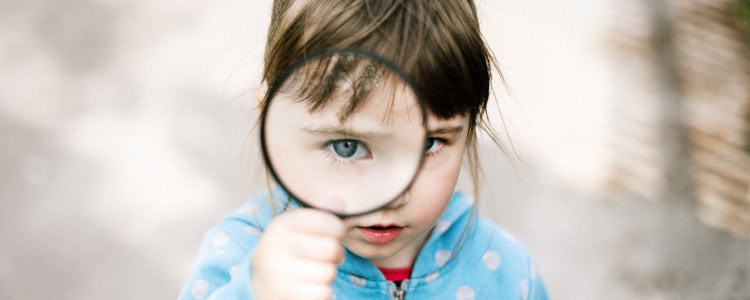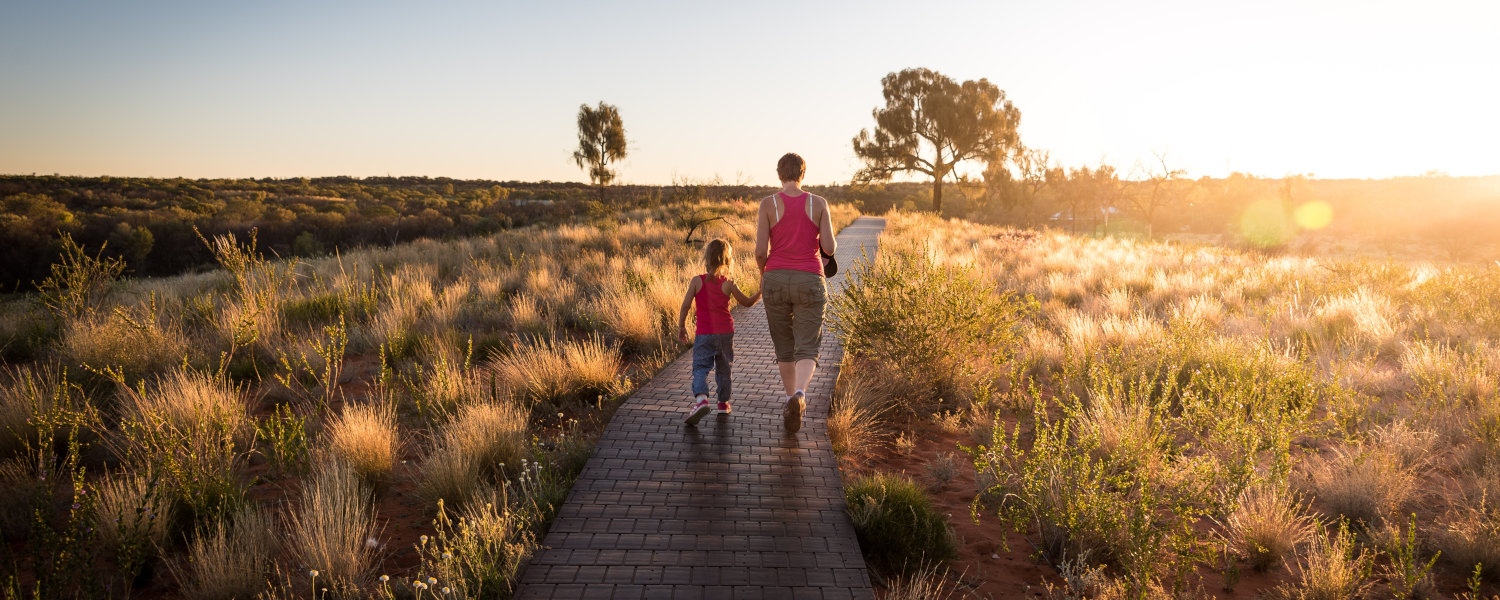In This Article
- What is CBD and CBD Oil?
- What is CBD Oil Used for in Children?
- Difference Between CBD Oil and Hemp Oil
- What are the Risks of Using CBD Oil for Children?
- Legality of Using CBD Oil for Children
- How do I choose a CBD oil for my child?
- What is the proper dosage?
- Are there any medications that should not be taken with CBD oil?
- Is CBD oil better than other types of CBD products for children?
CBD, or cannabidiol, has become massively popular. People from all walks of life – even those who never considered cannabis before – are turning to CBD to relieve a wide range of symptoms. Most adult consumers appreciate the cannabinoid’s natural effects and minor side effects.
But is CBD safe for kids?
Just like with adults, there’s evidence to suggest that CBD can help children with conditions like anxiety, insomnia, stress, autism, epilepsy, and more. At the same time, there are serious concerns about the effect of cannabis on the developing brain. If you’ve ever asked yourself “Is CBD oil safe for children?”, then read on to find out.
What is CBD and CBD Oil?
CBD is a cannabinoid, a naturally occurring compound created by the cannabis plant. The other major cannabinoid is tetrahydrocannabinol (THC), which is responsible for the intoxicating effect associated with the plant. Both CBD and THC have documented medical benefits. While pure CBD or pure THC products are available, there’s evidence that the two cannabinoids are more effective together.
Many people prefer CBD because it is federally legal and provides a range of benefits without producing the intoxicating “high” associated with THC.
Cannabis is broken down into two categories under federal law: hemp and marijuana. Hemp is any cannabis plant with less than 0.3% THC. Marijuana is any cannabis plant with more than 0.3% THC. CBD products are legal on the federal level as long as they come from hemp plants and contain less than 0.3% THC.
In states with medical and adult-use cannabis programs, you can find CBD products with higher amounts of THC at licensed dispensaries.
CBD oil is a popular product that combines cannabidiol with a plant-based carrier oil, like MCT oil, coconut oil, or hemp seed oil. CBD oils are sometimes mixed with natural flavors, like mint or citrus, to improve the taste.
CBD oils are a popular way to consume CBD because they’re fast-acting and don’t require smoking. Most people place a couple of drops under their tongue, and the body absorbs it through the thin skin in the mouth.
What is CBD Oil Used for in Children?

Like any CBD product, CBD oil is used to help alleviate a wide range of conditions. Some of these are better studied than others, but there are numerous anecdotal reports of CBD’s many benefits. CBD is even reported to help provide relief for dogs.
CBD has been reported to aid in the treatment of symptoms of the following conditions:
A 2016 study looked at CBD as a potential treatment for anxiety and insomnia resulting from PTSD in children. The researchers concluded that CBD was a safe and effective way to manage symptoms of PTSD and showed a clear reduction in both anxiety and insomnia.¹
A 2015 review of existing data on CBD’s role in treating various anxiety disorders corroborated what most people who have used CBD to treat anxiety have experienced; CBD helps lessen feelings of anxiety and associated symptoms.²
In 2019, a study investigated CBD's effects on sleep and anxiety. The researchers found that CBD significantly reduced anxiety and boosted sleep quality in most of the participants studied. They also noted that CBD was better tolerated than the psychiatric medications typically prescribed.³
A 2018 survey investigated why people use CBD and found that 62% of CBD users took cannabidiol to treat a medical condition. They also noted that the range of conditions was relatively wide and included the likes of anxiety and pain. When asked, 36% of participants indicated that CBD treated their condition very well. Only 4.3% said that CBD didn’t treat their condition very well.⁴
In 2020, researchers looked at the growing body of evidence for CBD’s ability to treat anxiety, depression, and bipolar disorder. The researchers found that CBD was effective at alleviating all three. They also investigated the entourage effect and suggested that the combination of cannabinoids, terpenes, and other plant compounds enhanced CBD’s effects.⁵
Researchers have also evaluated the potential of cannabis in treating symptoms associated with autism spectrum disorder, like agitation, self-harm, insomnia, and anxiety. In a 2019 study exploring the use of cannabis in the treatment of autism, 30.1% of patients reported significant improvements with high-CBD low-THC cannabis, and 53.7% of patients reported moderate improvements.⁶
Another 2018 study looked into the effects of CBD on autism but focused specifically on children. According to the parents of the children in the study, CBD significantly reduced symptoms in the children. Parents reported reductions in rage and self-injury at 67.6% and hyperactivity at 68.4%.⁷
Epilepsy and seizure disorders have also been treated with CBD for some time. The only FDA-approved use of CBD is the pharmaceutical, Epidolex, a medication made from CBD and approved for select seizure disorders.⁸
Of course, beyond the scientific and medical applications, a lot of recreational consumers use CBD to relax. Cannabidiol doesn’t have the intoxicating effects of THC, so people can use CBD for anytime relief of common symptoms like anxiety and pain.
Difference Between CBD Oil and Hemp Oil

The differences between CBD oil and hemp oil can be confusing, especially for newer consumers.
Since federally-legal CBD is derived from hemp, many people assume that hemp oil and CBD oil are one and the same. This isn’t the case. While CBD can–and frequently does–come from hemp, the term “hemp oil” usually refers to hemp seed oil, which doesn’t contain much, if any, CBD.
CBD oil is usually made by extracting the cannabinoid CBD from hemp flowers, leaves, and stems. The flowers are preferred because they have the highest cannabinoid content. Once CBD and the other cannabinoids are extracted, they’re mixed with a carrier oil. The most common carrier oil is MCT oil from coconuts, but sometimes hemp oil is used.
CBD oil is used for the potential therapeutic benefits of CBD to help relieve anxiety, get to sleep, alleviate pain and reduce inflammation, among other things. CBD oil, although not regulated as one, is used by many consumers in the same manner as an herbal supplement.
Hemp oil comes primarily from hemp seeds. Hemp seeds are considered a food item and are regulated as such. They only contain trace amounts of cannabinoids, if any, so they don’t produce the same effects as CBD. Hemp seeds are nutritionally rich and contain essential fatty acids like omega-3 and omega-6.
Hemp seed oil is most often used in food for its nutritional properties. It can be used for cooking in some situations, but it has a relatively low flash point, so more often, it’s used as an ingredient. Hemp seed oil can also be applied topically to moisturize skin, alleviate inflammation, and it may have antimicrobial properties that help with skin conditions like acne.
What are the Risks of Using CBD Oil for Children?

CBD oil is generally considered very safe, but that doesn’t mean it’s ideal for everyone and every situation. Usually, CBD makes people feel relaxed, but in rare cases, it can result in side effects like irritability.
The most common side effects associated with CBD are:
- Sleepiness
- Appetite changes
- Diarrhea
- Changes in mood
Most of the studies on CBD and children are focused on the treatment of epilepsy and autism. In both instances, the majority of researchers conclude that CBD is safe and effective. A 2018 report published by the World Health Organization draws the same conclusions. However, in nearly every instance, researchers also concluded that there is insufficient long-term research to understand the lasting implications of CBD use in children.
Parents seem to agree. According to a University of Michigan poll, 83% of parents surveyed believe that the FDA should regulate CBD, and 74% believe that CBD should require a doctor’s prescription for children. Still, 73% of parents believe that CBD could be a good option when other treatments are ineffective.
It’s essential to speak to your child’s pediatrician before giving them any CBD product. While adults can use CBD with little concern for additional risks, the long-term effects on children haven’t been sufficiently studied. For example:
- It is unclear if the use of cannabinoids, including CBD, can affect brain development. But cannabinoids are known to interact with the body’s endocannabinoid system, which helps regulate numerous processes in the body and brain.
- There are also concerns stemming from research on in-utero development and breastfeeding. While most of the research comes from animal studies, there are still reports of cannabis use by pregnant mothers potentially affecting developing infants.
- These concerns extend to breastfeeding, since it’s theorized that THC–and possibly CBD–can make its way into breastmilk. Unfortunately, there isn’t enough research into how cannabis may affect childhood development, and most of what does exist focuses only on THC-rich cannabis.
Until more research is conducted on the long-term effects of CBD, many parents and medical practitioners believe that CBD use in children should be reserved for medical applications only. It’s also possible that CBD can interact with other medications, which is another reason to talk to a pediatrician before administering cannabidiol to your child.
Legality of Using CBD Oil for Children

The legality of CBD can be complicated. When children are involved, the picture becomes even more challenging to decipher.
CBD is legal on the federal level if the product contains 0.3% THC or less and comes from hemp plants. States that have medical cannabis programs allow patients with a medical cannabis card to purchase CBD products with greater than 0.3% THC at licensed dispensaries. States with recreational cannabis programs allow adults over 21 to buy CBD products with more than 0.3% THC at licensed dispensaries..
The 2018 Farm Bill, which legalized CBD at the federal level, does not specify an age to purchase or use hemp products. However, some states have imposed regulations allowing only people over 18 or 21 to purchase CBD products, even if they contain less than 0.3% THC.
When it comes to medical cannabis, the laws are much easier to grasp. In states with medical cannabis programs, patients under 18 can access medical cannabis. In those instances, a parent or legal guardian must serve as their caregiver. In some states, minor patients must be evaluated by more than one physician.
If you think medical CBD with more than 0.3% THC is right for your child, look into the regulations and process for getting a medical cannabis card in your state.
How do I choose a CBD oil for my child?
If your child is a medical cannabis patient, speak to your doctor to see if they can recommend a product or dose. Always stick to the products available at your local licensed dispensary.
For federally-legal CBD, looking for products from reputable companies is best. Look for products that have a certificate of analysis (COA) to ensure that there are no impurities and that the levels of CBD and THC are as advertised. It’s also a good idea to look out for products with limited ingredient lists. Even if you follow these guidelines, it’s best to consult your child’s doctor before adding CBD to their daily regimen.
What is the proper dosage?
Finding the proper dosage depends on many factors, including the product, your child’s condition, age and weight, metabolism, and more. There’s no universal standard. It’s always best to consult with your child’s doctor to see if they can recommend a starting point to treat your child’s condition effectively.
Are there any medications that should not be taken with CBD oil?
Interactions between cannabis and medications aren’t well studied or understood. Researchers are most concerned about the potential for cannabis to interact with common antidepressants and anti-anxiety medications. It’s always best to talk to your doctor before using any cannabis product.
Is CBD oil better than other types of CBD products for children?
The CBD in CBD oil is the same as the CBD in edibles and other products. However, there are options that are absolutely not recommended for children, like smoking and vaping. And some products have faster onset times or may be more palatable to children. Oils are a simple, fast-acting option, and edibles can be too. Likewise, topical CBD creams can offer localized relief to the skin, muscles, and joints.
Sources:
¹ Shannon S. Effectiveness of Cannabidiol Oil for Pediatric Anxiety and Insomnia as Part of Posttraumatic Stress Disorder: A Case Report. The Permanente Journal. 2016;20(4). doi:https://doi.org/10.7812/tpp/16-005.
² Blessing EM, Steenkamp MM, Manzanares J, Marmar CR. Cannabidiol as a Potential Treatment for Anxiety Disorders. Neurotherapeutics. 2015;12(4):825-836. doi:https://doi.org/10.1007/s13311-015-0387-1.
³ Shannon S. Cannabidiol in Anxiety and Sleep: A Large Case Series. The Permanente Journal. 2019;23. doi:https://doi.org/10.7812/tpp/18-041.
⁴ Corroon J, Phillips JA. A Cross-Sectional Study of Cannabidiol Users. Cannabis and Cannabinoid Research. 2018;3(1):152-161. doi:https://doi.org/10.1089/can.2018.0006.
⁵ Ferber SG, Namdar D, Hen-Shoval D, et al. The “Entourage Effect”: Terpenes Coupled with Cannabinoids for the Treatment of Mood Disorders and Anxiety Disorders. Current Neuropharmacology. 2020;18(2):87-96. doi:https://doi.org/10.2174/1570159x17666190903103923.
⁶ Bar-Lev Schleider L, Mechoulam R, Saban N, Meiri G, Novack V. Real life Experience of Medical Cannabis Treatment in Autism: Analysis of Safety and Efficacy. Scientific reports. 2019;9(1):200. doi:https://doi.org/10.1038/s41598-018-37570-y.
⁷ Barchel D, Stolar O, De-Haan T, et al. Oral Cannabidiol Use in Children With Autism Spectrum Disorder to Treat Related Symptoms and Co-morbidities. Frontiers in Pharmacology. 2019;9. doi:https://doi.org/10.3389/fphar.2018.01521.
⁸ Abu-Sawwa R, Stehling C. Epidiolex (Cannabidiol) Primer: Frequently Asked Questions for Patients and Caregivers. The Journal of Pediatric Pharmacology and Therapeutics. 2020;25(1):75-77. doi:https://doi.org/10.5863/1551-6776-25.1.75.
The information in this article and any included images or charts are for educational purposes only. This information is neither a substitute for, nor does it replace, professional legal advice or medical advice, diagnosis, or treatment. If you have any concerns or questions about laws, regulations, or your health, you should always consult with an attorney, physician or other licensed professional.




